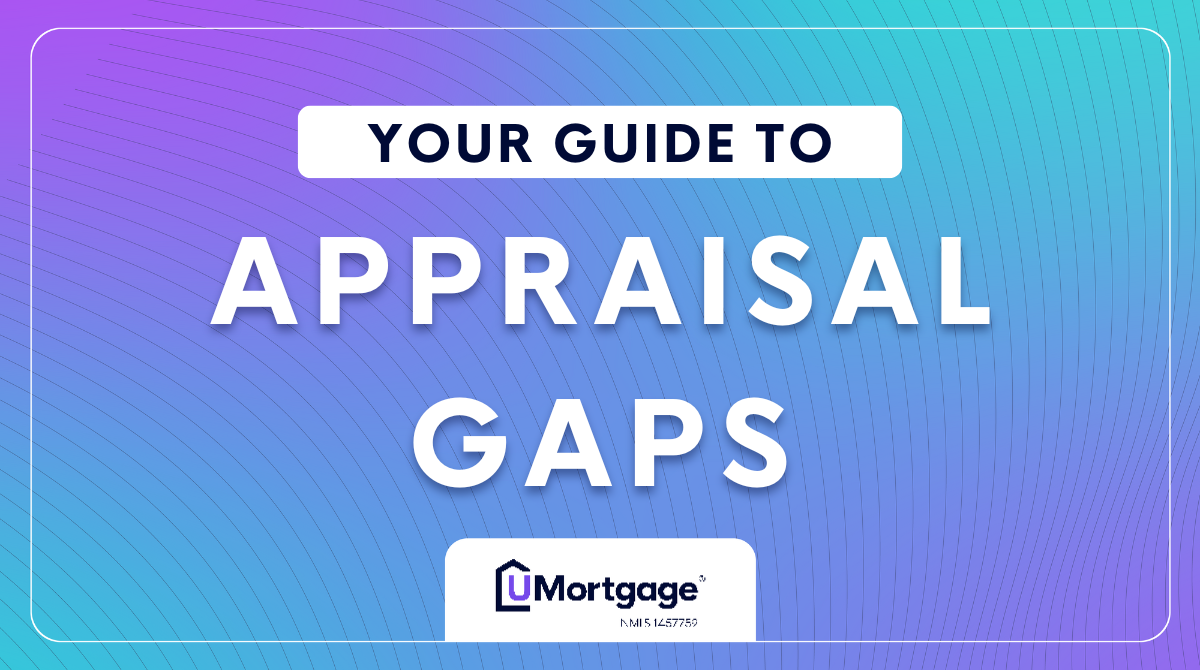Homebuyer’s Appraisal Gap Guide: How to Navigate Low Appraisals & Win Your Dream Home
Published: May 30, 2024

Homebuyer’s Appraisal Gap Guide: How to Navigate Low Appraisals & Win Your Dream Home
Finding your dream home is a process. From your initial pre-approval to the steps taken searching the housing market and submitting your offer letter, it’s not uncommon to get excited and attached to a home once you’ve had your offer accepted.
However, that excitement can quickly turn to stress if your home appraises for a price lower than your offer. Although appraisal gaps aren’t uncommon in a competitive housing market, these gaps can significantly impact your home purchase. Let's dive deeper into understanding what appraisal gaps are, their implications, and strategies to navigate them.
What is an Appraisal Gap and Why Do They Occur?
An appraisal gap occurs when a professional appraiser determines that a home's market value is lower than the price a buyer offered. This discrepancy can raise concerns for both buyers and lenders and might lead to various complications in the homebuying process.
Understanding the Home Appraisal Process
Appraisals are conducted by licensed professionals who possess extensive knowledge of the local real estate market. They meticulously analyze the property's characteristics, comparing it to similar recently sold homes in the area, known as "comps."
An appraiser considers factors like square footage, the number of bedrooms and bathrooms, the home's age and condition, any recent upgrades or renovations, and the property's location and surrounding neighborhood to land on the appraised value. By meticulously weighing these factors, appraisers arrive at a fair market value estimate for the property.
Reasons That a Home Might Appraise Lower Than Your Offer
• Competitive Markets: In hot markets with low inventory and high demand, buyers often offer above the asking price to secure a home. This can lead to prices exceeding the actual market value.
• Dated Comparisons: The appraiser may compare the property to those that don't accurately reflect recent market trends or the unique aspects of the home being appraised.
• Seller Concessions: If a seller agrees to cover certain closing costs or make repairs, the appraiser might lower the value to offset these concessions.
How an Appraisal Gap Can Impact Your Offer
Appraisal gaps have far-reaching implications for buyers. Mortgage lenders rely heavily on appraisals to ensure they're not lending more money than a home is worth. If a gap exists, the lender won't loan you the full amount needed to cover your offer and can force you to make up the difference in cash.
This unexpected financial burden can be a major obstacle for many buyers, especially those looking to buy their first home or those without substantial cash savings to cover the difference.
A low appraisal can be used as leverage to renegotiate the price with the seller. However, this isn't always successful, especially in competitive markets where sellers may have other offers. Additionally, renegotiations can delay the closing process and create tension between parties.
What to Do If Your Home Appraises Lower Than Your Offer
Facing an appraisal gap can be daunting, but it's not the end of the road. These strategies can help you overcome this hurdle and potentially get your homebuying journey back on track:
• Cover the Gap with Cash: The most straightforward solution is to pay the difference between the appraised value and your offer price in cash. However, this is only feasible for buyers with ample savings.
• Renegotiate the Price: If the seller is motivated, you can try to negotiate a lower price based on the appraisal. This requires strong negotiation skills and a willingness to compromise.
• Challenge the Appraisal: If you believe the appraisal is inaccurate, you can dispute it by providing additional evidence of the property's value, such as recent comparable sales data or information about renovations or upgrades the appraiser might have overlooked.
• Order a Second Appraisal: Sometimes, getting a second opinion from a different appraiser can reveal a different valuation. However, this comes at an additional cost and may not always yield the desired results.
• Exercise Your Appraisal Contingency: Many real estate contracts include appraisal contingencies and clauses that allow buyers to back out of the deal if the appraisal falls short of the offer price. These contingencies often come with deadlines, so it's important to act fast if you wish to exercise them.
Appraisal gaps are a common but often stressful aspect of the homebuying process. By understanding what they are, their impact, and the available strategies for addressing them, you can confidently navigate this obstacle and make informed decisions to secure your dream home without compromising your financial well-being.
If you experience an appraisal gap or have any concerns about a potential appraisal gap before submitting your offer, feel free to reach out to your UMortgage Loan Originator for expert financial guidance.
